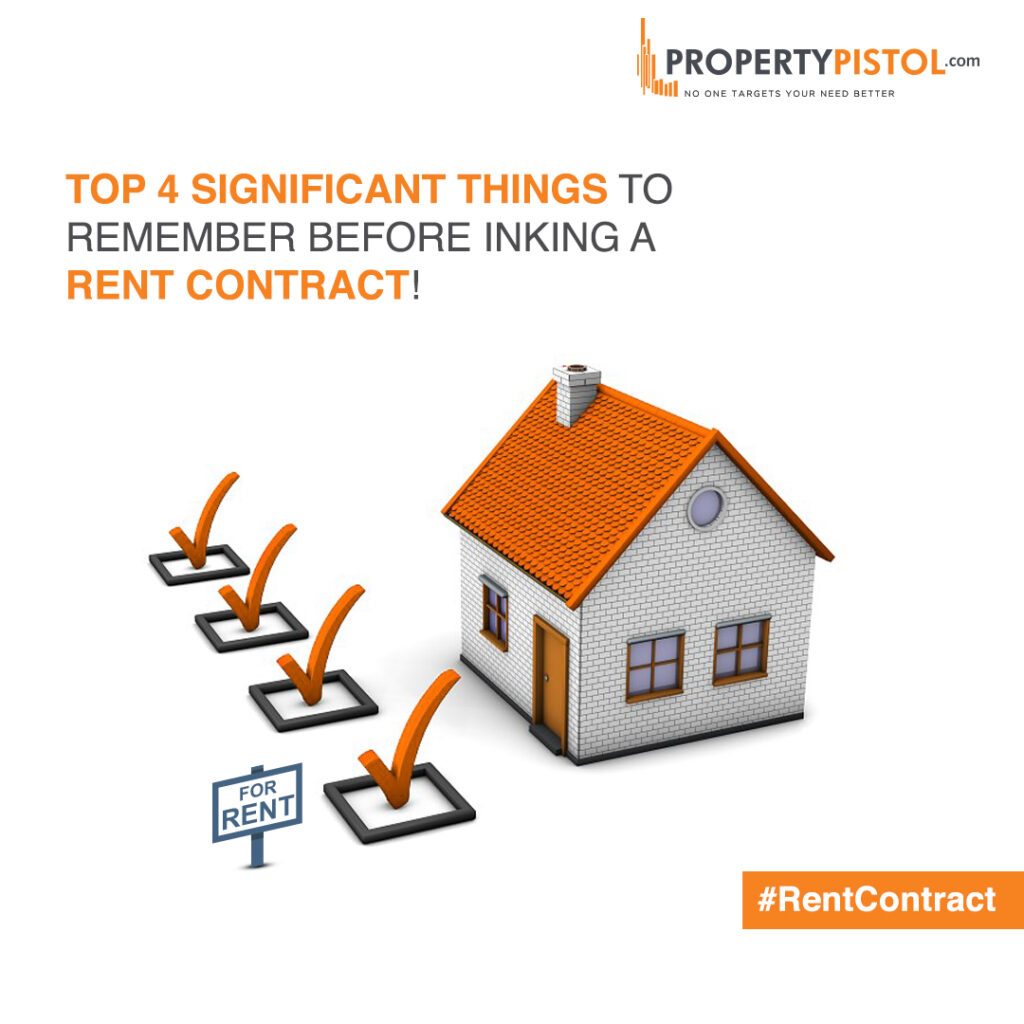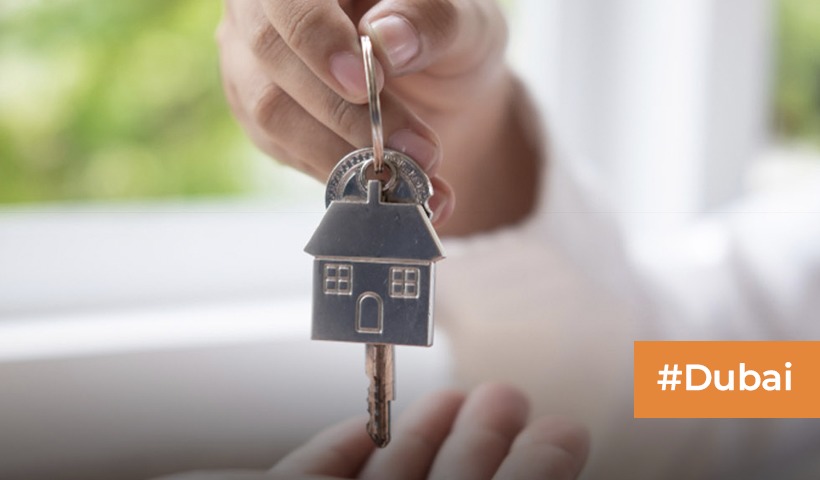Top 4 significant things to remember before inking a rent contract!
Finding a rental property within your budget that too in a new city can be a daunting task. The lease agreement is one of the things to keep in mind. To avoid unpleasant surprises, go over the lease agreement thoroughly.

What is a rental agreement?
A rental/lease agreement is a legal document that states that both the owner and the tenant have agreed to abide by the rental laws and the terms of the agreement. A rent agreement is often written by a real estate agent employed by the landlord and the renter. Both the landlord and the tenant must sign the agreement in the presence of two non-beneficiaries of the property who will also be signing the agreement as witnesses for it to be legitimate.
As a rental, you must ensure that your rental agreement satisfies your needs and protects your rights. We’ve broken down the lease agreement inspection procedure into four basic steps to make it easier for you. Be careful and consider these procedures before closing the deal to avoid any problems.
Inspect the property for any existing damages and make a note of them
Scan the hallways and rooms of potential apartments and houses for any damages or broken appliances as you walk through them. To be on the same page with the landlord, note anything you see and ask questions about it. Examine the building’s exterior and interior conditions. Examine the surface for any holes or scratches, check for pests, bugs, and the like, unless you want to wake up with mysterious red bits.
Examine the unit and check the quality of the appliances; find out if there are any issues with the lights, electrical wiring, outlets, locks, faucet water pressure, or the fire escape. If you find any flaws, make sure you speak with the landlord about them.
If you do not conduct a thorough examination prior to signing any contracts with your landlord, you may find that it is too late to notice the defects and have them repaired. For example, if you inform the landlord of these flaws ahead of time, it establishes that you were not the one who caused them, making the process of obtaining a return on investment much easier when checking out.
Find out what’s included in your rent?
Water, power, gas, internet, sewer, and trash can all be included in the rent. Check to see what’s included, so you don’t pay extra for anything you weren’t aware of; it also helps manage the budget. Consult with your landlord to determine who is responsible for property upkeep, lawn care, elevator maintenance, and garbage disposal etc.
A maintenance fee, a parking fee, and the cost of a coin-operated laundry are some of the additional hidden costs. There are stories littered throughout the internet about renters being promised that their rent includes a particular utility, only to find out after signing the lease that the tenant is liable. Make sure it’s obvious who’s responsible for which utility, so you’re not surprised when you find out you’re the one paying the gas and electric bill, not your landlord!
Are changes to the apartment permitted? if so, what’s the limit?
Getting a new place to rent can be an exciting experience. You want to settle in and make your new house a comfortable place to live, just like any other tenant. Not every home will come with all of the bells and whistles. You could notice that there are a few changes you’d like to make.
Perhaps the walls are too bright, or the drapes are too short in length for your liking. Are you able to make changes to the property? Changing the bathroom doors, painting the walls, in case you work with music, adding a few acoustic panels, or even planting a garden in the backyard are all examples of this.
Always check with your landlord first. From the perspective of your landlord, these modifications might sometimes be considered property damage. Everyone wants to personalize their house as much as possible, but doing so without first informing your landlord might result in the loss of your security deposit or even the termination of your lease.
Going through agreement with a fine comb, pay attention to the terms and conditions and find out your rights
Before you sign the lease, make sure you read the terms thoroughly to understand what is required of you and what’s provided. It’s possible that what your landlord says in-person differs from what’s written in the contract. It’s sometimes possible to work out a deal with your landlord that isn’t just restricted to the rent. It should be clear on issues like the pet policy, laundry privileges, security deposits, and most importantly, rent inflation. Remember that a lease is a contract between you and the landlord, not a list of demands made by one party.
If you sign it on impulse without thinking, it’s more than likely that you will encounter problems down the line. Consider this scenario: you have a lease period of one year at the time of moving in; after a few months, you want to take in a puppy, but the landlord changed the pet policy a week before. Situations like this lead to either eviction or a very unhappy landlord, some with the security deposit; unless the contract specifies the conditions under which it will be dissolved, the landlord can take advantage of it.
For example, you may believe that subleasing is permitted, only to discover in the fine text on the lease paperwork that “Tenants must not assign or sublet any room” just as you’re about to leave town and sublease your room for the month. Because the consequences can differ from one landlord to the next, it’s usually wise to check with them first. Also, check whether you can host parties or even invite a few friends over the weekend and keep an eye out for nosy neighbors.
After you’ve gone over everything, you should have a much better idea of what you’re getting yourself into – now you can relax.
The most important thing to remember is to not rush into signing your contract. You can always get a copy of the contract ahead of time so that you can thoroughly review it. Keep a copy of everything (preferably on the internet), and don’t hesitate to ask questions. One of our many strategies to save money on rent is to thoroughly check the leasing agreement for hidden charges. You have made it to the end so, goodbye and good luck with the new apartment.
Disclaimer: The views expressed above are for informational purposes only based on industry reports and related news stories. PropertyPistol does not guarantee the accuracy, completeness, or reliability of the information and shall not be held responsible for any action taken based on the published information.





With the booming rental market in the area, there are plenty of opportunities to rent out your property and earn a steady income stream.
https://www.amaialand.com/blog/Rental_Opportunities:_Earning_Passive_Income_Through_Your_Condo_in_Alabang/